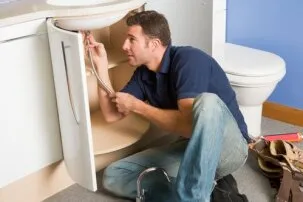A plumber is a skilled tradesperson who specializes in installing and maintaining systems used for water, drainage, sewage, and gas in residential, commercial, and industrial buildings. They are responsible for ensuring that these systems are functioning properly and are essential for the health, safety, and comfort of the people who use the buildings.
Plumbers are trained to work with a variety of materials, including metal, plastic, and copper, and use a range of tools and equipment to complete their work. They are also knowledgeable about building codes and regulations to ensure that the systems they install meet the necessary standards.
One of the primary tasks of a plumber is to install and repair pipes, fixtures, and appliances that are used for water supply and drainage. This can include everything from installing new toilets, sinks, and showers to repairing leaky faucets and clogged drains. They may also be responsible for installing and maintaining water heating systems, such as boilers and water heaters, as well as gas lines for appliances like stoves and dryers.
In addition to installation and repair, plumbers also play a crucial role in preventing and addressing plumbing emergencies. They are often called upon to respond to issues like burst pipes, overflowing toilets, and gas leaks, and are trained to quickly and effectively resolve these problems to minimize damage and ensure the safety of the building's occupants.
Overall, plumbers play a vital role in maintaining the infrastructure of buildings and ensuring that water and gas systems are functioning properly. Their work requires a combination of technical skills, problem-solving abilities, and a strong understanding of building codes and regulations. As such, plumbers are essential members of the construction and maintenance industries.

